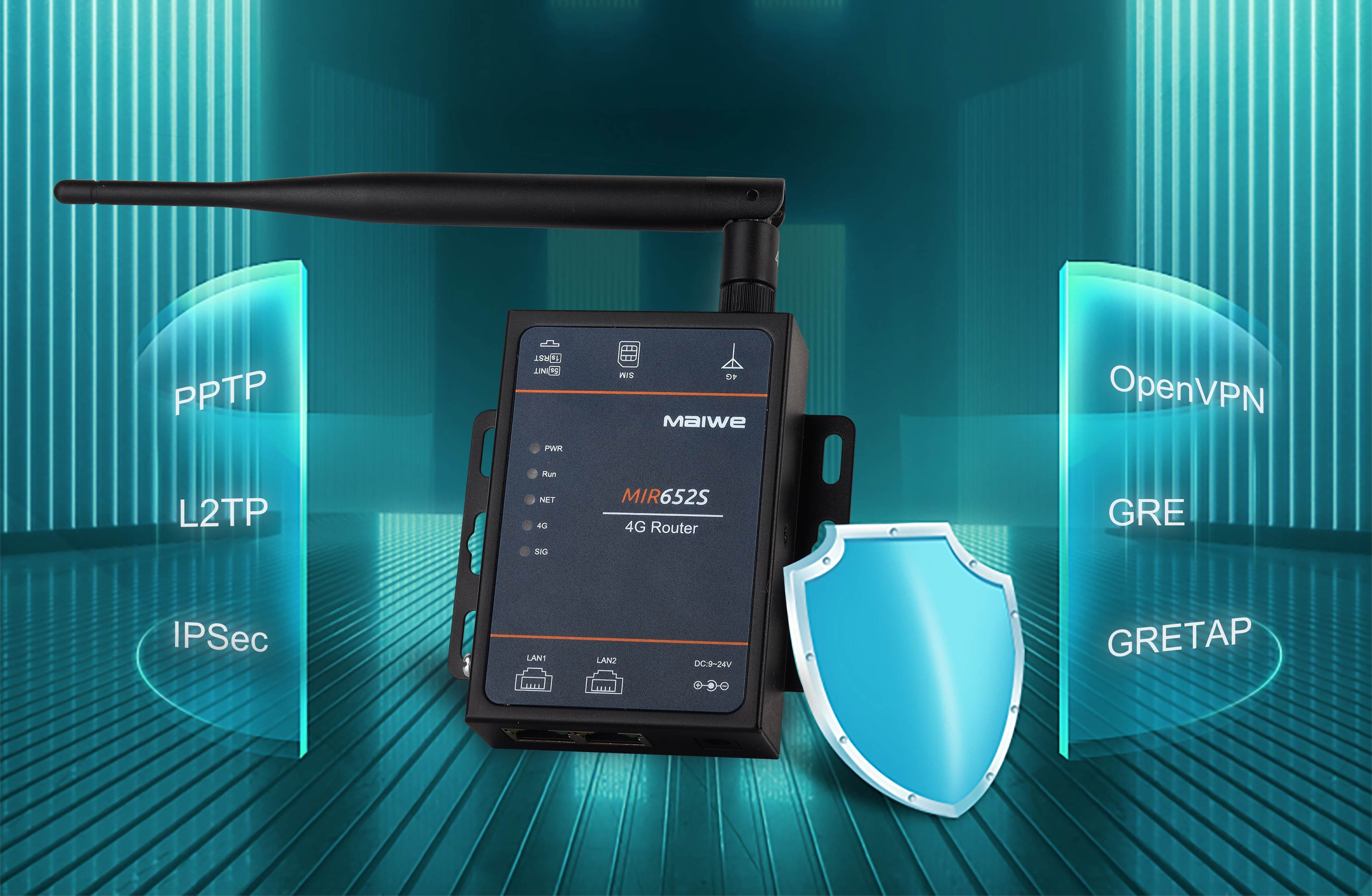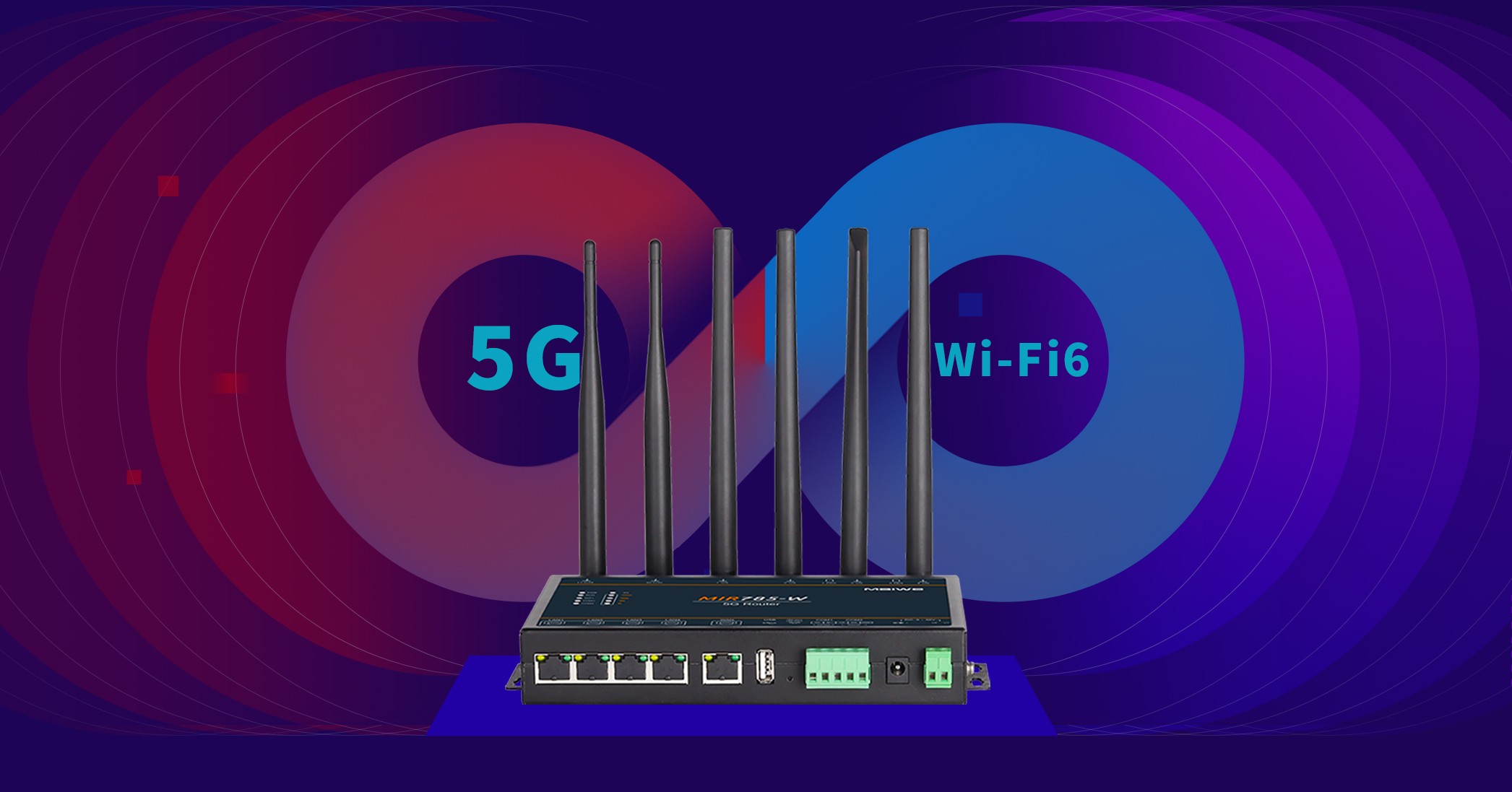What Is Industrial Wireless Router and How to Choose
Industrial wireless routers are tailored for harsh environments, ensuring connectivity and communication across industrial settings. They thrive where standard routers falter—extreme temperatures, excess humidity, pervasive dust, and constant vibration don't compromise their performance. These routers are pivotal for remote access, seamless data flow, network oversight, and bolstering security for essential industrial apparatus like sensors, PLCs, cameras, and machinery. This post tells the essentials of industrial wireless routers, explaining how to select the perfect fit for your needs and uncovering the technological advances shaping their future.
Whether your search is for a cellular, multi-gig, dual-band, or industrial-grade router, our insights aim to navigate you toward the optimal choice for your wireless network. For those keen on leveraging industrial wireless routers to enhance their business operations, continue reading to unlock the potential these powerful tools offer.
The Essentials of Industrial Wireless Routers
An industrial wireless router is engineered to deliver wireless connectivity in industrial settings, distinguishing itself from typical home or office routers through its exceptional ruggedness, durability, and enhanced performance features. Designed to thrive in severe conditions, it remains unaffected by extreme temperatures, humidity, dust, and vibration, ensuring a reliable and secure wireless network. It supports various industrial communication protocols like Modbus, EtherNet/IP, and Profinet, facilitating smooth integration with other industrial systems.

Furthermore, with certifications like IP67, industrial Wireless routers are guaranteed to be dustproof, waterproof, and shockproof, ensuring uninterrupted performance in harsh settings. They have broad temperature tolerances (-40°C to 75°C), fit for extreme conditions. Additionally, options for DIN rail mounting simplify installation within metal enclosures or industrial cabinets.
Types of Industrial Wireless Routers
Industrial WiFi Router
- Connectivity: A WiFi router connects to the internet or a network using WiFi technology, which is commonly used in homes and offices. These wifi routers operate on 2.4 GHz, 5 GHz, or dual frequency bands, offering broader bandwidth, faster speeds, and extended range.
- Usage: It is used to provide wireless internet or network connectivity within a limited area, such as a factory floor or warehouse.
- Features: Industrial WiFi routers are designed to be rugged and reliable in harsh industrial environments, offering features such as dual-band operation, industrial-grade certifications, and support for industrial communication protocols.
Industrial Cellular Router
- Connectivity: Equipped with SIM card slots, industrial cellular routers offer cellular connections (4G LTE, 5G NR, LTE IoT). This feature ensures internet access or remote device communication via cellular networks, providing a more dependable and secure alternative to wired or public WiFi networks, similar to how a smartphone accesses the internet. Furthermore, the industrial cellular router supports WAN redundancy, preparing the system to automatically switch to a backup network in case the primary one fails.
- Usage: It is used to provide internet or network connectivity in remote or mobile applications where traditional wired connections are not feasible.
- Features: Industrial cellular routers are designed to withstand rugged conditions and offer features such as support for multiple cellular standards (e.g., 4G LTE, 5G NR), WAN redundancy for failover protection, and multiple SIM card slots for flexibility in choosing cellular providers.
Maiwe provides industrial routers that support both WiFi and cellular access, ensuring reliable connectivity in various industrial settings.
*Read more on how to choose the right industrial cellular router.
Applications in Various Industries
Industrial Wireless routers find utility across diverse sectors, including:
- Manufacturing: By implementing industrial Wireless routers with cellular and WiFi connections, they facilitate seamless wireless data exchange among machines, sensors, PLCs, and cameras in manufacturing plants. This boosts efficiency, productivity, and quality, enabling remote operations monitoring and control.
- Transportation: In the transportation sector, these routers offer connectivity for vehicles (buses, trains, trucks, cars), aiding GPS tracking, fleet management, passenger information systems, and security, while collecting critical data for system analysis.
- Energy: They enable wireless communication for energy devices (smart meters, solar panels, wind turbines), enhancing smart grid management, renewable energy integration, demand response, and power quality monitoring, besides facilitating remote device access and control.
Choosing the Right Industrial Wireless Router
Understanding Specifications and Standards
When selecting an industrial Wireless router, understanding its specifications and standards is crucial for ensuring optimal performance and compatibility. Key factors to consider include:
- WiFi standards: These standards outline the capabilities of the wireless network, such as speed, range, frequency, and security. The latest standard, WiFi 6, enhances wireless connectivity speed and efficiency. However, compatibility with devices that only support previous standards (WiFi 5 or WiFi 4) may necessitate a router that accommodates multiple standards.
- Cellular standards: These standards detail the cellular network's characteristics, including speed, latency, coverage, and reliability. With 5G offering superior cellular connectivity, areas without 5G coverage might require a router that also supports 4G LTE or 3G.
- Industrial standards: These standards specify the requirements for industrial devices, focusing on ruggedness, durability, and safety. Common industrial standards include the IP rating for dust and water protection, MTBF for reliability and lifespan, and EMC for electromagnetic interference resistance.
Connectivity and Expansion Options
Connectivity and expansion options are also vital when choosing an industrial Wireless router. Depending on your specific needs, look for routers with:
- Multiple SIM card slots: This feature allows the use of various cellular providers or plans, enhancing the network's availability and redundancy. It's also useful for deploying routers across different regions or countries. Maiwe industrial cellular routers are designed with dual SIM card slots.
- Multiple Ethernet ports: More Ethernet ports enable the connection of additional wired devices like PLCs, cameras, or computers, thereby enhancing your router's performance and network security. Multiple antenna ports: Different antennas can improve the signal strength and quality of your wireless network. External antennas may also extend your network's range or coverage. Maiwe provides industrial wireless routers with up to 4*5G antennas and 2*WiFi antennas.
- Memory and storage slots: Expanding your router's memory and storage can boost its speed and performance. These slots can also store data or run applications, augmenting your router's functionality and intelligence.
Management and Security Features
The final considerations when choosing an industrial Wireless router are the management and security features it offers. Depending on your requirements, essential features may include:

- Cloud or on-premise management: Cloud management facilitates remote router management via web or mobile apps, streamlining configuration, monitoring, and troubleshooting. On-premise management offers local management through software or a device, providing more customization and control.
- VPN and firewall: These security features safeguard your router and network from unauthorized access or attacks. VPNs create a secure, encrypted connection to another network, while firewalls filter and block traffic based on established rules.
- Segmentation and encryption: These methods protect your network's data and devices. Segmentation isolates portions of your network to diminish breach risks, and encryption secures your data with a secret key, preventing unauthorized access.
Future Developments and Trends Emerging Technologies
The landscape of industrial Wireless routers is on the brink of transformation, driven by a wave of new technologies designed to enhance their performance, functionality, and intelligence. Key emerging technologies steering this evolution include:

- WiFi 6E: Building on WiFi 6, WiFi 6E ventures into the 6 GHz frequency band, unlocking increased bandwidth, speed, and capacity. This advancement accommodates more devices and high-demand applications like 4K video streaming, online gaming, and virtual reality, maintaining high-quality, reliable connections.
- 5G NR: Representing the next stage in cellular networks, 5G New Radio (NR) promises faster, more robust connectivity. With its higher data rates, reduced latency, and expanded coverage, 5G NR paves the way for groundbreaking applications, including autonomous vehicles, smart urban developments, and the industrial Internet of Things (IoT).
- AI and ML: Artificial Intelligence (AI) and Machine Learning (ML) empower devices and systems to learn from data, executing tasks that normally require human intelligence, such as recognizing patterns, analyzing information, and making decisions. By incorporating AI and ML, industrial Wireless routers can optimize network performance, identify and mitigate anomalies, and provide valuable insights and advice.
Conclusion
Industrial wireless routers stand as pivotal components in enabling seamless wireless connectivity and communication across various sectors like manufacturing, transportation, and energy. They are instrumental in amplifying the efficiency, productivity, quality, and adaptability of industrial operations. Furthermore, they facilitate remote access, data transmission, network oversight, and safeguarding of industrial devices. Their utility extends to supporting extensive data gathering and analysis, essential for producing operational intelligence, heightened situational awareness, and predictive analytics. This, in turn, bolsters decision-making and operational performance.
If integrating industrial wireless routers into your operations piques your interest, or if you're keen on discovering more about our offerings, we're here to assist. Our portfolio encompasses an array of products and services designed to meet your unique needs. Let us guide you to the optimal solution for your industrial wireless network and give you the necessary support and advice for a triumphant implementation. We eagerly await your outreach.





















 Pre
Pre
 Back to list
Back to list